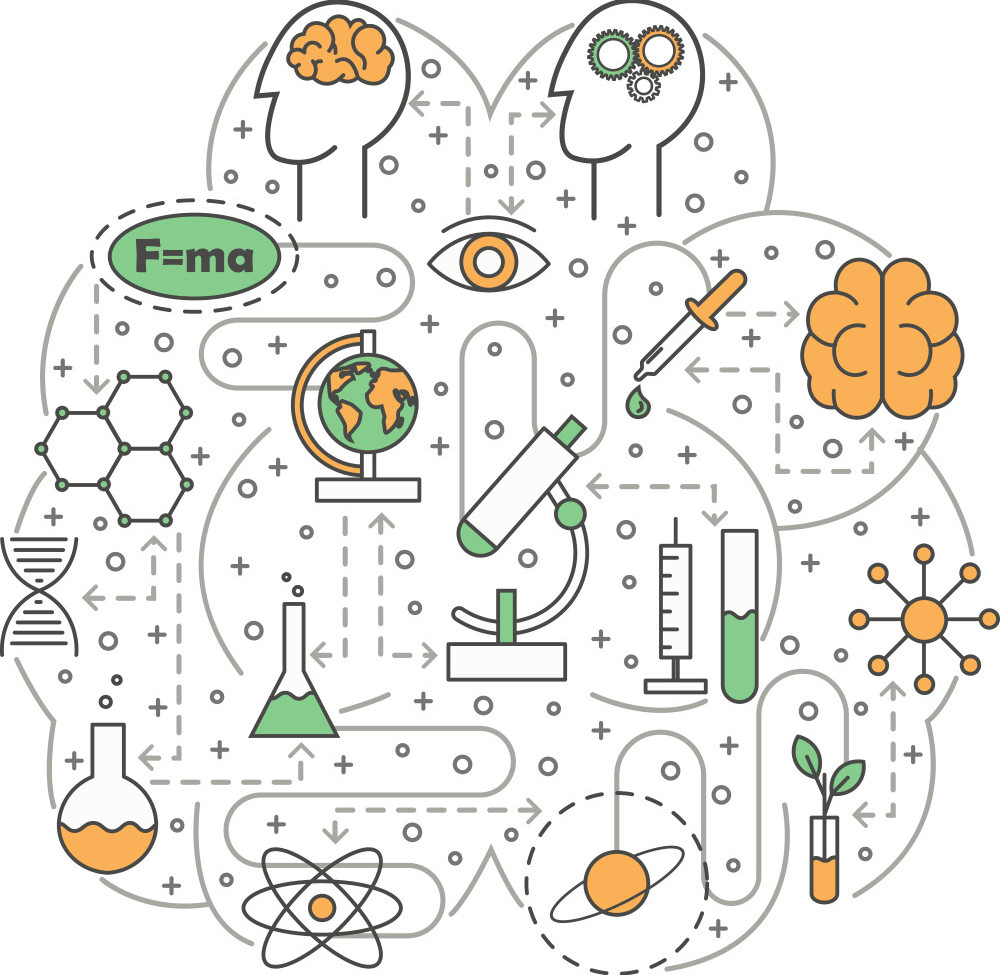3a What is Science?
Week: 20/05

Learning Objectives
Psychologists often face the question: Is psychology truly a science, like biology or physics?
While you may have your own opinion on this matter, answering it requires an understanding of what constitutes science. We need to develop an understanding what science is. What are the criteria of good or bad science? What is distinguishes science and pseudoscience? In addition, we must ask, how should science be or in other words, whether there are established norms for scientific practice.
- Bem & Looren de Jong (2013), Chapter 1: Science: Why, and How?
- Turner & McCreery (2015), Scientific Norms/Counternorms
- Piekkola (2017), Chapter 3: Science and Psychology \(^\textbf{*}\)
\(^\textbf{*}\) Focus in that chapter on the history of early science and the concerns with ethics. That is, the chapters 3.4–3.7 are not relevant
Tutorial Meeting
Question 1
Which popular but mostly incorrect or misleading stereotypes of science or scientists do you know? Brainstorm about how scientists are often shown in “pop culture” and discuss how well these stereotypes match what science is really like.
Question 2
Provide a definition of science. What are the characteristics of the scientific method?
Question 3
Science requires reasoning to combine pieces of information and to draw, for example, the link between an observation and a theory. What types of logical reasoning are there?
Question 4
Describe the typical stages of the process of empirical science?
Question 5
What is a theory? What is a law? What is a model?
Note: These concepts are closely related, of course, and cannot be sharply distinguished. But they have a slightly different focus.
Question 6
How does the concept of empiricism conflict with the idea theory-ladenness? In what ways do the principles of pure observation and theory-ladenness influence our understanding of scientific observations? Provide examples to illustrate your points.
Question 7
What were the important contributions that Jevons and John Stewart Mill to our today’s understanding of science?
Question 8
Explain Merton’s “norms of science”?
Discussion 1
What do you think: Should science be free? Why or why not? Is that nowadays always the case? What are threads of the freedom of science?
Study Checklist
- Definition scientific knowledge
- unification, underlying causes, reduction
- everyday (common-sense) vs. scientific knowledge
- realism, idealism and pragmatism
- 6 characteristics
- Basic Epistemological Concepts
- Deduction
- Induction (& problems of induction)
- Abduction
- pure observation (empiricism) & theory-ladenness
- definition of theory and model
- empirical & theoretical laws
- Causality
- The Empirical Cycle
- “C.U.D.OS” Norms of Science
- “History of science” (Piekkola chapter)
- phenomenal stage and theoretical stage
- early science
- Jevons
- John Stewart Mill
- methods of induction: joined, agreement & difference
- Concern with Ethics